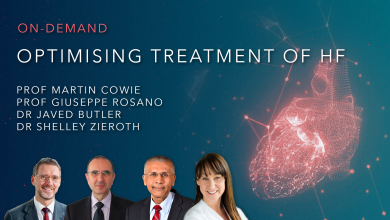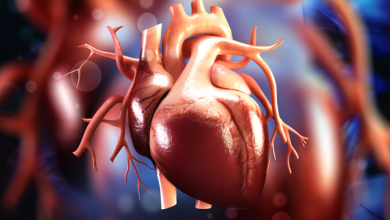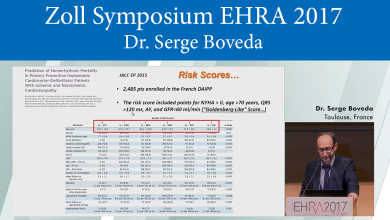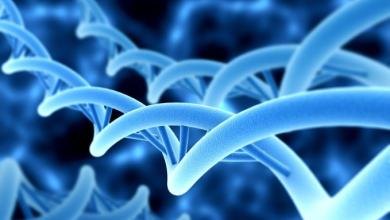Search results
Optimising Treatment of HF
Video Series
Author(s):
Antoni Bayés-Genís
Added:
3 years ago
“Science can amuse and fascinate us all, but it is engineering that changes the world.”
– Isaac Asimov, 1920–1992
Technological breakthroughs, particularly advances in devices, are changing the course of heart failure (HF) management. Implantable devices have been used for decades to treat heart disease. The first pacemaker was implanted over 60 years ago (October 1958), and implantable…
View more
Author(s):
Veli-Pekka Harjola
Added:
3 years ago
Heart failure (HF) is a clinical syndrome characterised by inadequate systemic perfusion to meet the body's metabolic demands as a result of impaired cardiac pump function. It is one of the leading cardiovascular health problems in Europe, and its incidence, particularly in the elderly, continues to increase despite an intensive effort to increase education and delivery of healthcare to affected…
View more
Author(s):
Cameron T Lambert
,
Pratik Sandesara
,
Ijeoma Isiadinso
,
et al
Added:
3 years ago
Familial hypercholesterolaemia (FH) is an autosomal-dominant disorder associated with mutations in the LDL receptor (LDLR) gene resulting in markedly elevated plasma low-density lipoprotein cholesterol (LDL-C) levels and premature atherosclerotic cardiovascular disease (ASCVD). Heterozygous FH (HeFH) (mutation in one allele) is associated with plasma LDL-C levels >190 mg/dl, whereas homozygous…
View more
Author(s):
Hans-Michael Klein
Added:
3 years ago
An increasing number of patients survive acute myocardial infarction. Surgical and interventional revascularisation of the ischaemic myocardium can treat angina, reduce risk of myocardial infarction and improve the function of the viable myocardium. However, the therapeutic possibilities in end-stage heart failure patients are limited. This article investigates alternative treatment options such…
View more
Author(s):
Athanasios Charalampopoulos
,
J Simon R Gibbs
Added:
3 years ago
Abstract
Pulmonary hypertension is a relatively common finding in patients with left heart disease and lung hypoxic disease. Nonetheless, some types of pulmonary hypertension, such as pulmonary arterial hypertension and chronic thromboembolic pulmonary hypertension, are rare. Despite the rarity of these diseases their impact on patients' lives and healthcare system is significant because of…
View more
Author(s):
Ricardo Seabra-Gomes
,
Jorge Ferreira
Added:
3 years ago
Cardiogenic shock (CS) is a state of systemic tissue hypoperfusion due to cardiac failure in the presence of adequate intravascular volume.1 Left ventricular pump failure leading to CS remains one of the most serious and challenging conditions over time in cardiology and is still the most common cause of hospital mortality associated with myocardial infarction (MI).2 This review focuses on CS in…
View more
Author(s):
Mauricio Wajngarten
,
Gisele Sampaio Silva
Added:
3 years ago
Stroke is the second most common cause of mortality worldwide and the third most common cause of disability.1 Although there has been a global trend towards a reduction in stroke incidence, prevalence and mortality since the 1990s, the overall stroke burden in terms of absolute number of people affected continues to increase.2 More than 1 million people have a stroke every year in Europe and that…
View more















